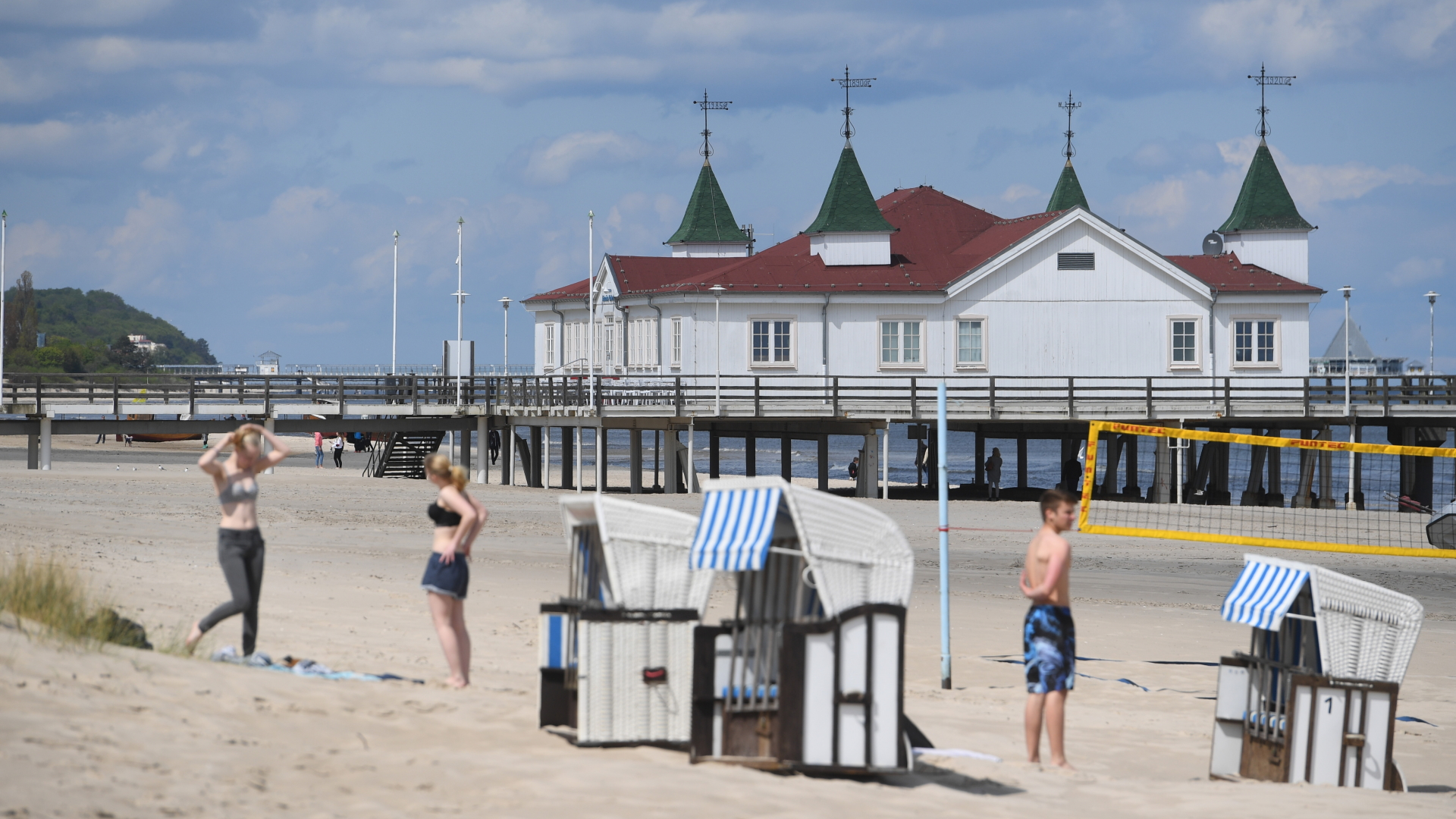The north is leading

Because the number of new infections remained low, the north is reopening faster than some other parts of the country. The focus is particularly on gastronomy. Mecklenburg-Western Pomerania also wants to welcome visitors from abroad again soon.
The tourism region of Mecklenburg-Western Pomerania reopens its restaurants and ends the multi-week entry ban for foreign tourists before Pentecost. The basis for this far-reaching decision was the continued low number of new corona infections despite the shop opening and partial resumption of school operations.
"The easing in the past 14 days has worked well, the infection situation remains stable," said Prime Minister Manuela Schwesig (SPD). Prior to this, representatives of the state government and the hotel and restaurant industry had agreed on a step-by-step plan for the restart of the hospitality industry in the northeast in the joint Task Force Tourism. According to this, the restaurants in the country should initially be allowed to open to the locals from 6 a.m. to 9 p.m. on Saturday from 6 a.m. to 9 p.m. under strict hygiene requirements and with a maximum of six adults. Waiters and service staff should wear masks, but guests should not.
Most popular destination for Germans
On May 18, hotels, guesthouses and holiday apartments will also open to the locals. The entry ban for tourists from other federal states, which has been in force since mid-March, is to be lifted on May 25th. This would make it possible for all German citizens to miss the Pentecost holiday missed at the end of May on the Baltic Sea or in the Mecklenburg Lake District.
Wellies in the cloakroom of a daycare center Image source: dpa
Kindergarten openings
NRW threatens to go it alone
NRW wants to open daycare centers on its own - this brings the relaxation debate to a new high. | more
The hotels are initially only allowed to rent a maximum of 60 percent of their bed capacity. Tourism, which is regarded as a supporting economic pillar in the weak industrial north-east, was particularly hard hit by the corona-related forced closings. Mecklenburg-Western Pomerania is the most popular travel destination for Germans in Germany.
Tschentscher: Talk about catering restrictions
Hamburg's first mayor Peter Tschentscher also wants to talk about relaxing the corona restrictions in the catering industry. "I think we can take further steps there," said the SPD politician in an ARD Extra. There is "pressure now" in the industry. Tschentscher campaigned for further joint action by the federal and state governments. "We have had good experiences with the fact that we have a framework concept for the whole of Germany, into which the countries then fit". One should stick to this concept of success.
Broadcast picture
Paths of the countries in easing
"Federalism as an opportunity in a crisis"
In this crisis, federalism should not be seen as a problem, but as an opportunity, says Tina Hassel. | more
It is important that one does not lose the discipline despite the currently good numbers. Tomorrow Chancellor Angela Merkel (CDU) and the Prime Ministers of the federal states will meet again and discuss how to proceed in the Corona crisis. The focus is on day-care centers, schools and sports, and according to the federal government, catering should be given a perspective. With reference to regional differences, heads of state governments increasingly insist on being able to go their own way.
A family walks on the promenade in El Arenal in Palma (Mallorca) Image source: dpa
Corona rules in Europe
This is how Germany's neighbors relax
As of today, several European countries are loosening their corona restrictions. An overview. | more
The Hamburg Senate wants to decide on some easing already today. For this purpose, the agreements of the federal and state governments from the past week are to be implemented in concrete terms. After that, playgrounds can be reopened and services can also take place. The heads of government had also agreed to open museums, memorials, zoos and botanical gardens. Already on Monday, students from certain classes were allowed to go back to school and open barber shops.
Because sees no outbid competition
Teschntscher received support from the Lower Saxony Prime Minister Weil. This also spoke out in favor of a nationwide easing concept in the daily topics.

